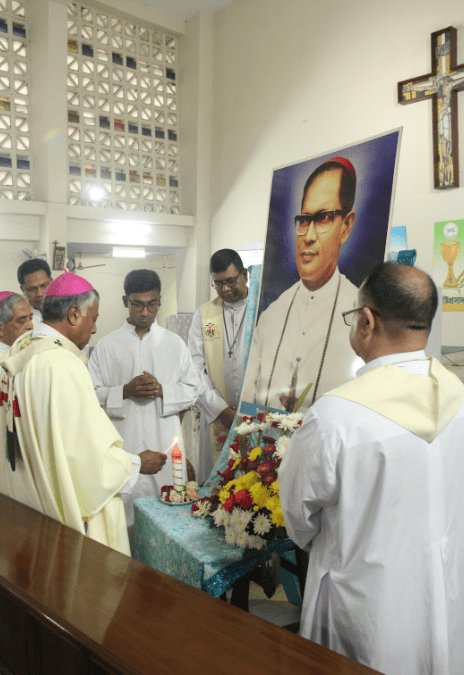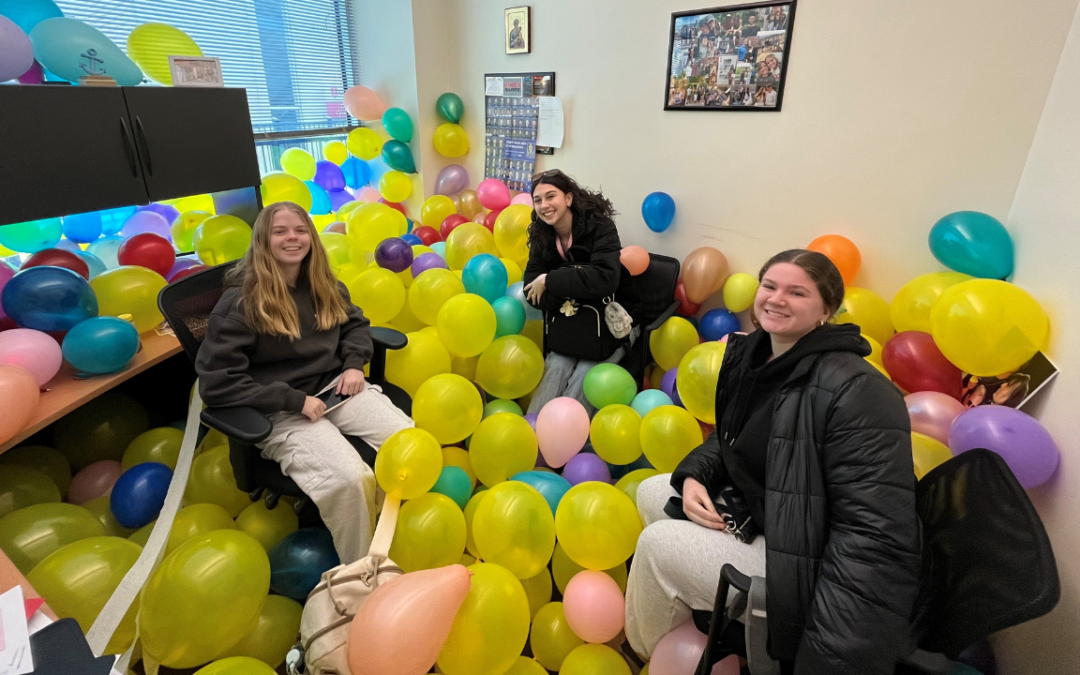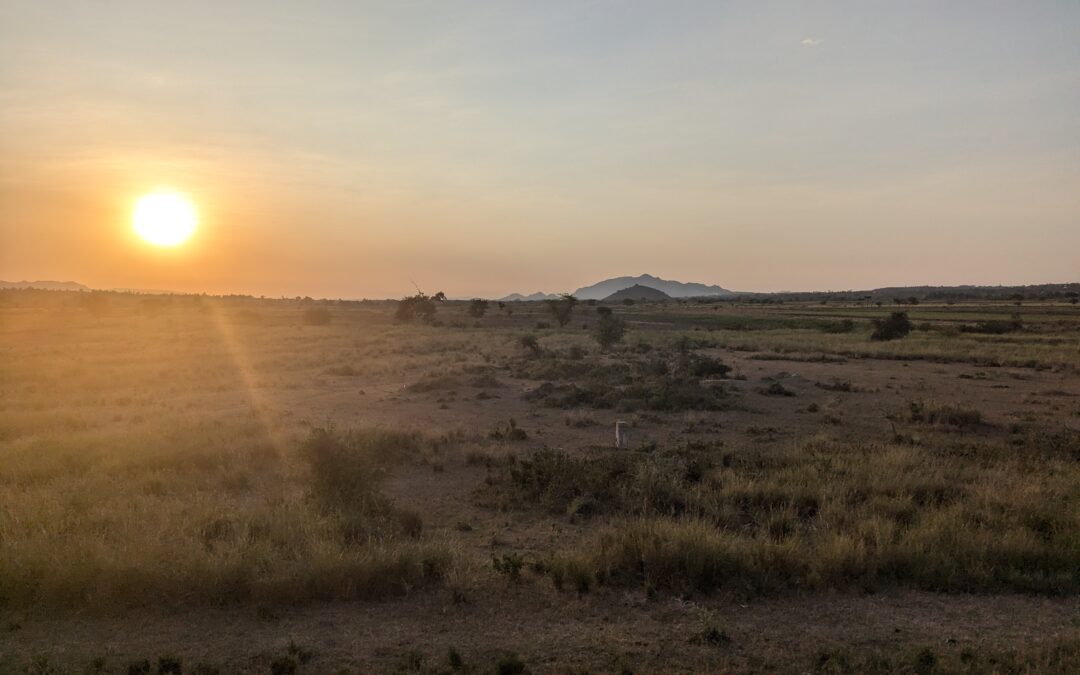This article was originally published on the University of Notre Dame College of Arts and Letters webpage
For American studies major and Holy Cross seminarian John Draves, education is an extension of his faith
Children love to act things out. Some pretend to be a mother or a father, others act as a shopkeeper or pose as a singer.
At age 6, John Draves wanted to be a priest.
He put on his red bathrobe, adorned a small table with a white cloth and two candles, and set out some Necco wafers in a red plastic bowl — Communion hosts, he imagined, meant to be consumed by a congregation of his family or a babysitter as part of his fictional Mass.
Draves, now a senior at Notre Dame, never abandoned that passion for his faith. As a seminarian in the Congregation of the Holy Cross, Draves uses his faith as backdrop through which he pursues his academic interests — majors in American studies and philosophy and a minor in theology.
“The thing I appreciate and love about American studies is it’s not so narrow-minded or tunnel-visioned,” he said. “You’re encouraged to incorporate your interest or your particular thing you find thought-provoking into a lot of the papers you write or assignments you do.”
The mere process of reading and researching has helped answer a lot of questions I have in my own formation, of what I want to do with my life, so it’s much more of a personal project in that way.
Voices behind the numbers
Although he declared American studies as his intended major on a whim before coming to Notre Dame, Draves fell in love with the program during a class with professor Sophie White. As she discussed fashion among slaves in New Orleans, Draves was struck by the way she was able to turn data about the number of enslaved individuals in the American South into relatable stories of real people.
“I realized there was this moral dimension to this field that really interests me,” he said. “What she drew out of these statistics — that they were all people who had interests and tastes and fashion and material goods just as much as we do. That really piqued my interest.”
Through viewing enslaved people from this perspective, Draves identified one of the core tenets of Catholicism — every person has worth and dignity. The Church’s emphasis on care for the whole person as a valuable individual, he realized, was reflected in his American studies courses, such as in White’s presentation.
That class instilled a concept that has been woven throughout his American studies curriculum — the importance of the ability to recognize and synthesize different stories and ways of thinking into a cohesive narrative while retaining a sense of self-identity.
He has expanded this to his journey through seminary. To be a good member of the religious community one day, Draves sees the value in “knowing that there are other stories out there — knowing how to listen to those other narratives and get behind what people are trying to say and how they are trying to construct their own sense of being and their own identity.”
American studies, Draves has found, offers an interdisciplinary perspective through which he can incorporate his faith into his studies. For his senior thesis, Draves is researching the decline in the number of religious brothers within American Catholicism around the time of Vatican II and the 1960s.
He is drawing upon sources predominantly from the Hesburgh Library and the University Archives, using Brothers’ Newsletter, a religious publication circulated from 1950s to 1990s, to read articles written by and for members of Catholic brotherhoods.
With these sources in mind, and with fewer Catholics and Americans recognizing who brothers are and how to talk about them, Draves concluded that there was an identity crisis among the population at that time.
“That identity problem was only exacerbated by the change in the mission of brothers around 1965, when Vatican II encouraged the laity to participate more fully in the life and ministry of the Church,” he said. “An upset to the mission of the brothers coupled with an already compromised identity precipitated a sharp decline in the number of religious brothers in the United States.”
Holy Cross formation staff have been supportive of his academic endeavors and encourage all seminarians to explore their interests. The order, Draves said, understands the importance of diversity of thought amongst Catholic leaders, giving him the opportunity to pursue passions within the classroom and outside of it.
As Draves is discerning whether to enter the religious brotherhood himself, his thesis serves as more than just an academic exercise.
“There’s definitely a spiritual vocational component in my work,” he said. “The mere process of reading and researching has helped answer a lot of questions I have in my own formation, of what I want to do with my life, so it’s much more of a personal project in that way.”
‘Brother, why are you doing this?’
During his summers, Draves participated in a Summer Service Learning Program in St. Louis and an International Summer Service Learning Program in Kolkata, India, both through the Center for Social Concerns. He planned to return to India in summer 2020 but the coronavirus pandemic prevented that.
In Kolkata, he and his site partner worked with the Missionaries of Charity, the order founded by Mother Teresa, to assist in two homes — Daya Dan, for children with physical and mental disabilities, and Kalighat, the home for the dying — as well as at the volunteer registration center.
John Draves Isslp
Draves with the Missionaries of Charity, the order founded by Mother Teresa, during an International Summer Service Learning Program experience in summer 2019.
The sisters woke at 4:45 a.m. daily for prayer and meditation — and Draves woke up with them.
“The sisters questioned me, ‘Brother, why are you doing this?’ and I was like, ‘This is what religious life is all about. It’s about prayer and work at the service of Christ among the poor and weak.’ And they’re like, ‘Yes, that is why we do it,’ and I was like, ‘I know, that’s why I love doing this with you.’”
These summer experiences further taught Draves about understanding alternate stories, something that he was first exposed to through American studies.
“The most significant thing that I witnessed in India that forced me to understand different narratives was the extreme poverty of so many people and the fact that daily I encountered people whose entire existence was limited to some small strip of sidewalk in Kolkata,” he said. “The severity of poverty that I saw led me to encounter different perspectives that I often overlooked or disregarded, and, over the course of the summer, the cultivation of friendships with those in such poverty led me to understand and empathize.”
‘Education is a work of resurrection’
Draves is the only seminarian American studies major, but he finds that environment akin to what his ministry will be like one day, working with people from all different backgrounds. Collaborating with peers on projects offers the opportunity for interactions he wouldn’t have if he was only surrounded by fellow seminarians.
They also present the chance for him to show a different side of the Church. Where some might envision his order as a lofty entity composed of elderly men, he said, a seminarian’s presence counters that narrative by providing a youthful representative.
“Being the seminarian, you kind of get tagged as the spokesperson for the Church, which I’m wholly unqualified to do, but it just happens,” he said. “I try to be deliberate about what I say, how I synthesize what the Church says and what has happened in history, and how I bring that into American studies courses.”
Just as Draves followed God’s call to enter seminary right out of high school, he is depending on it to know which path he should take as a seminarian. He is currently in his postulant year of formation with seven other men, after which he will spend one year as a novice, if accepted. The next step is to spend at least four years as either a professed seminarian to become a Holy Cross priest or a professed scholastic to become a Holy Cross brother.
For Draves, education is more than the process of learning — it is an extension of his faith and an integral part of his formation.
A big quote that is kind of a good framework is ‘education is a work of resurrection,’” Draves said. “What I do in the classroom is not merely so I gain knowledge. It’s helping me develop as a person to be of service to the Church and the world, being a witness in that way.




